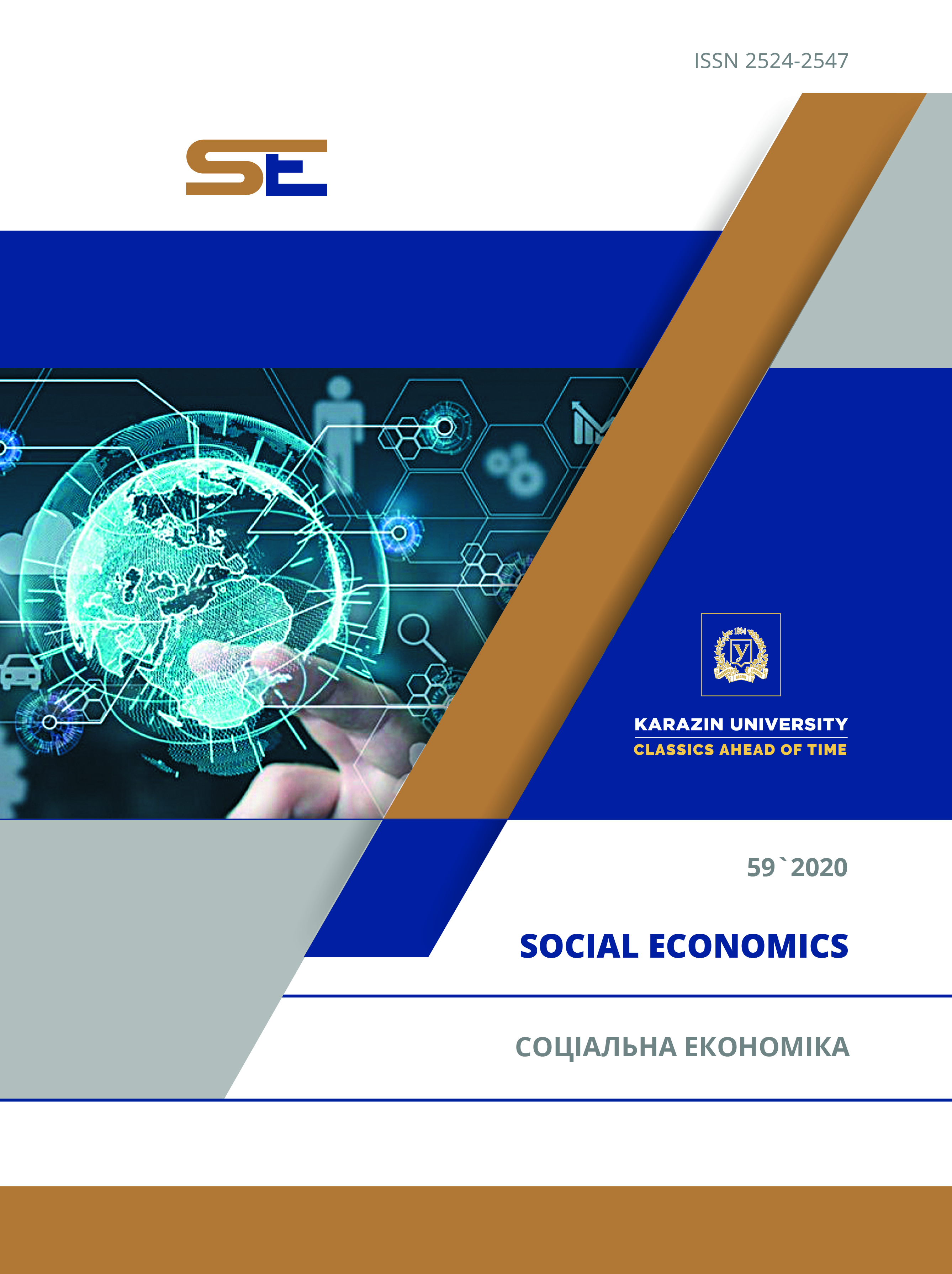Unification of the state financial control system in the context of globalization
Abstract
This article substantiates the need for unification of the state financial control system, where unification according to the author is the standardization of the principles and mechanisms of state financial control, which is applicable for any state, regardless of its historical and cultural development. The basic structural elements of the state financial control system were determined to achieve the aim of the research. It was determined that internal audit is important not only for the public sector, as an instrument of control over the use, formation and saving of public finances, but also for the private sector of the economy. In foreign practice, the information base of internal audit is used in risk management to reduce company risks and increase financial stability. The results of the study is the author’s suggestion of the unification of the system of subjects of the state financial control based on the type of control they perform. The proposed system is based on the classification of foreign systems of the state financial control, which has developed historically, and international ISSAI standards. The proposed system considers not only the economic aspect of the institution of the state financial control, but also social and global. Based on the social aspect, the importance of public financial control was proved, because in democratic countries, formed social institutions have an important role in the socio-economic processes of the state. In the system formulated by the author, the significance of creating an appropriate supreme body of the financial control, its impact on the lives of citizens, and the importance of cooperation of subjects of the state financial control with public financial control was substantiated. Thus only with this cooperation is it possible to form an effective unified system of the state financial control, which will provide the socio-economic development of the country. According to a global point of view, the need to improve the importance of the international financial control institution INTOSAI, and the formation of a supranational type of control, which should be included in the state financial control system of each country was substantiated.
Downloads
References
Khmelkov, A. V. (2018). Publichni finansy: obsiag ta zmist. Finansovo-kredytna diialnist, 27(4), 428-434. doi: 10.18371/fcaptp.v4i27.154174. (in Ukrainian)
Khmelkov, A. V. (2016). Rakhunkova palata Ukrainy iak agent instytutu kontroliu publichnyh finansiv. Aktualni problemy ekonomiky, 5, 370-381. (in Ukrainian)
Khmelkov, A. (2017). Subject and object scope of the institute of control. Financial and credit activity: problems of theory and practice, 1(22), 351-361. doi: 10.18371/fcaptp.v1i22.110072. (in Ukrainian)
Khmelkov, A. (2019). Volume of public finances as a subject of control. Financial And Credit Activity: Problems Of Theory And Practice, 4(31), 311-318. doi: 10.18371/fcaptp.v4i31.190921.
Pihockyi, V. (2016). Zarubizhnyi dosvid organazatsii derzhavnogo finansovogo kontroliu ta mozhlyvist iogo vykorystannia v Ukraini. Ekonomist, 1, 31-34. (in Ukrainian)
Zavystovska, G. I. (2014). Zarubizhnyi dosvid uriadovogo finansovogo kontroliu. Ekonomichnii analiz, 18(1), 156-161. (in Ukrainian)
Stefaniuk, I. B. (2011). Metodologichni zasady funkcionyvannia systemy derzhavnogo vnutrishniogo finansovogo kontroliu v Ukraini. Finansy Ukrainy, 6, 84-102. (in Ukrainian)
Dolbneva, D. (2016). Stan ta neobhidnist standartyzacii derzhavnogo finansovogo kontroliu v Ukraini. Ekonomichnii chasopys Skhidnoievropeiskogo nacionalnogo universytetu imeni Lesi Ukrainky, 1, 96-101. (in Ukrainian)
Shevchuk, O. A. (2015). Sutnist systemy derzhavnogo finansovogo kontroliu. Finansivyi prostir, 1(17), 304-308. (in Ukrainian)
Aleksandrovych, O. O. (2014). Osoblyvosti organizacii ta funkcionuvannia systemy derzhavnogo finansovogo kontroliu: svitovyi dosvid. Teoriia ta praktyka derzhavnogo finansovogo upravlinnia, 4(47), 375-383. (in Ukrainian)
Kosova, T., Shevchenko, V. (2018). Vyshchii derzhavnyi finansovyi kontrol v umovakh ievrointegracii Ukrainy. Zovnishnia torgivlia: ekonomika, finansy, pravo, 1, 121-129. (in Ukrainian)
Glushchenko, O. V. (2015). Financial System: in Search of a New Paradigm. Actual Problems of Economics, 9(171), 21-30.
Badshah, I., Mellemvik, F., & Timoshenko, K. (2013). Accounting from a religious perspective: a case of the central government accounting in islamic Republic of Pakistan. Asian Economic and Financial Review, 3(2), 243-258.
Bożek, S., & Emerling, I. (2016). Protecting the Organization Against Risk and the Role of Financial Audit on the Example of the Internal Audit. Oeconomia Copernicana, 7(3), 485-499. doi: 10.12775/OeC.2016.028.
Yasin, M., Artinah, B., & Mujennah. (2018). Analysis of Internal Control in Enhancing Performance’s Accountability in Local Government Work Unit through Risk-Based Audit (ISA). Advances in Economics, Business and Management Research, 64, 80-87.
Limska deklaraciia rukovodiashikh principov kontrolia. EUROSAI. Retrieved from https://eurosai.org/handle404?exporturi=/export/sites/eurosai/.content/documents/others/ISSAI/ISSAI-1-Lima-declaration-Ruso.pdf. (in Russian)
Znacheniie i preimushchestva vysshikh organov audita – vliianiie na zhizn grazhdan. EUROSAI. Retrieved from https://www.eurosai.org/handle404?exporturi=/export/sites/eurosai/content/documents/ /others/ISSAI/ISSAI-12-Ruso.pdf. (in Russian)
Indeks spryiniattia korupcii. (2018). Transparency International. Retrieved from https://ti-ukraine.org/research/indeks-spryjnyattya-koruptsiyi-2018/. (in Ukrainian)




